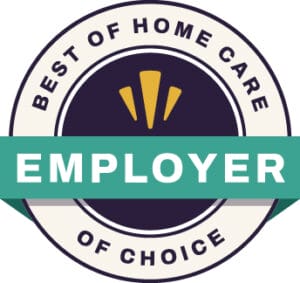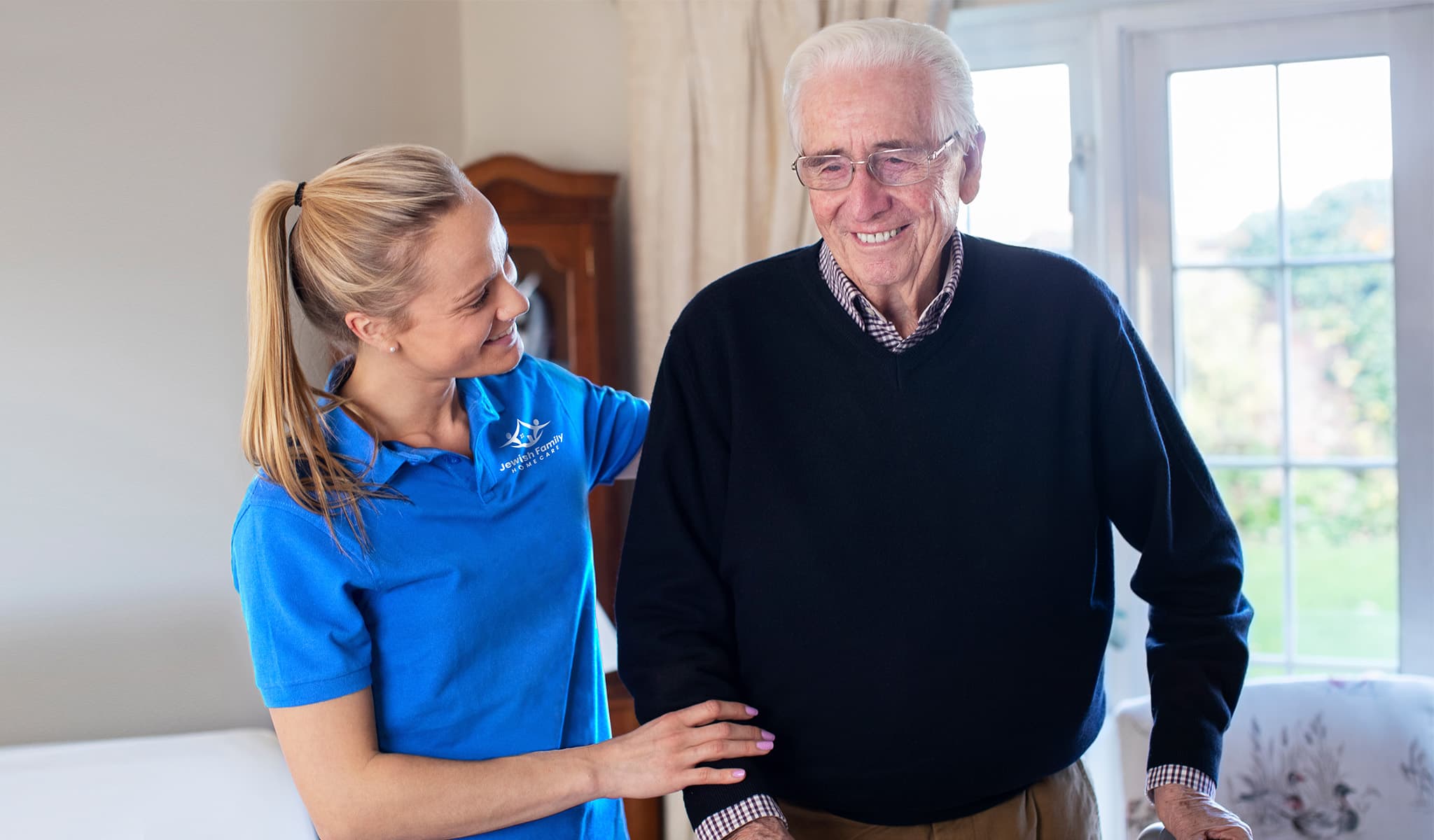Make a Real and Lasting Difference in the Lives of Florida Seniors
Are you the kind of person who:
- Is caring, nurturing, reliable, and compassionate?
- Has a passion for helping others?
- Wants to be part of a company that truly values you?
If so, we invite you to explore an opportunity to join the award-winning Jewish Family Home Care team, serving older adults in Pembroke Pines, Tamarac, Hollywood, Davie, Hallandale Beach, and throughout Broward County.
Why Become a Caregiver?
At Jewish Family Home Care, our employees become part of the family.
We know that caregiving can be challenging work that may feel unappreciated. When you join our team, we work hard to make sure you know how valuable you are by providing:
- Competitive
- Flexible schedules – work when and where YOU want to work
- Full, ongoing RN-led training on a wide variety of topics
- CEU Renewal
- 403-B with company match
- Raises and other perks
- And more!
Award-Winning Team
 We’re proud recipients of the Best of Home Care® Employer of Choice awards each year since 2022. These designations are awarded to us by HCP, a third-party industry leader in client and caregiver satisfaction measurement. This demonstrates our unwavering commitment to exceptional care for not only our clients but for our care professionals, too.
We’re proud recipients of the Best of Home Care® Employer of Choice awards each year since 2022. These designations are awarded to us by HCP, a third-party industry leader in client and caregiver satisfaction measurement. This demonstrates our unwavering commitment to exceptional care for not only our clients but for our care professionals, too.
Apply to Join Our Team Today!
We are always looking for qualified candidates to join us in our mission to make life better for residents in Broward County. We routinely hire:
CNAs and Home Health Aides
Provide hands-on personal care, perform simple procedures as an extension of therapy or nursing services, assist in ambulation or exercises, provide medication reminders, assist with tasks of daily living, and perform other home health aide services.
Homemakers
Perform light housekeeping duties, including dusting, sweeping, mopping, vacuuming, cleaning bathrooms and kitchens, changing linens and making beds, doing dishes and laundry, removing trash, etc. Homemakers may also prepare meals, provide companionship, and more.
You can find our current job openings on Indeed. We will schedule an interview for you if your qualifications match our needs. Those who pass the interview stage will undergo thorough background checks and receive full training.
Qualifications/Educational Requirements
Please bring the following with you when you come for your interview:
- Compassionate and caring demeanor
- CNA License or HHA Certificate
- Florida Driver's License/Florida ID Card
- Auto Insurance Card
- CPR Card
- Social Security Card
- Proof of residency or Citizenship
- Legal Resident: Permanent Resident Card or Work Visa
- Continuing Education Credits (CEUs)
- TB test & Physical (completed within the LAST 6 Months) stating that the applicant is free of all communicable diseases.
- COVID Vaccination (recommended)
- Access to reliable transportation, dependability, responsibility, and reliability
Jewish Family Home Care
Katz Federation Building on the David Posnack Campus
5890 South Pine Island Road, Suite 200
Davie, Florida 33328
This job description is used as a guide only and not inclusive of responsibilities and job duties.
